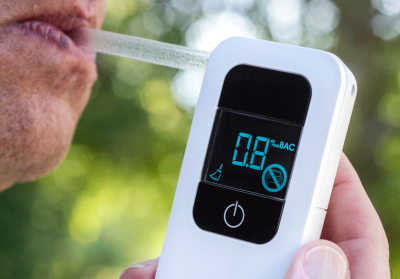How long does alcohol stay in your system?
Tuesday, February 28, 2023

How long does alcohol stay in your system?
When you consume alcohol it takes anything between 15 minutes and an hour to reach your bloodstream, depending on the contents of your stomach at the time of drinking. Once the alcohol enters your bloodstream your body begins to metabolise it. Metabolism is the body’s chemical process for breaking down a substance to be absorbed, used as energy or disposed from the body. This happens whatever food or drink you consume.
With alcohol, the metabolising process is done primarily by your liver. On average, you metabolise at the rate of one unit per hour, but this varies depending on factors such as your weight, height, gender, body composition, whether you’ve eaten or not and any medication you may be taking.
So to understand the process we need to understand what a unit of alcohol is. In the UK, one unit of alcohol is 8 grams of pure ethanol, which is 10mL of ethanol. The % ABV (also referred to as % vol) measurement of a drink indicates how much of the volume of the drink is pure ethanol. For example, a 40% ABV vodka is 40% pure ethanol by volume, therefore in 100mL of this drink there is 40mL of pure ethanol which is 4 units of alcohol. It is important to note different countries have different measurements for alcohol units.
To take an extreme case, if you were to drink a one litre bottle of vodka at 40% ABV, this would be 40 units of pure alcohol and it would take a colossal 40 hours to remove this amount of alcohol from your system - assuming you were still alive at this point!
Here is a rough guide to the estimated time for different drinks to clear your system, although the time will vary if drinks are at different % ABV to the examples used below:
One pint of average strength beer or lager 2.5 hours
Four pints 10 hours
Six pints 15 hours
One large glass of wine (250ml) 3.5 hours
Half a bottle of wine 5.25 hours
One bottle of wine 10.5 hours
A single measure of whisky 1.5 hours
A double measure 3.5 hours
Four doubles 12 hours
So, if you spend the whole evening in the pub, you can see how driving the morning after drinking could be dangerous.
How long does alcohol stay in urine
Testing urine for alcohol is a quick, non-invasive procedure that can produce results straight away. Alcohol can be detected in urine less than an hour after consumption, and its maximum concentration is reached after 5.5 hours. Depending on how much alcohol you have drunk, 24-96 hours is how far back alcohol can be detected in urine. Ethyl glucuronide (EtG) which is used as a biomarker to test for ethanol use and to monitor alcohol abstinence, can be detected for up to 5 days in urine.
How long can alcohol be detected by a blood test
Detection periods for alcohol can range from just a few hours to up to six weeks, depending on the type of blood test. Testing for Phosphatidyl Ethanol (PEth) is the most accurate blood test to determine whether any alcohol has been consumed and the recognised period of detection is up to four weeks. However, the greater the exposure, the longer the detection period.
How long does alcohol stay in your breath
A breathalyser measures the blood alcohol concentration (BAC) in your breath and is an easy, instant test to detect whether you’ve been drinking. If, for example, you were to consume four pints of medium-strong beer or four large glasses of wine, a breathalyser would detect alcohol in your system for up to 14 hours. Something to remember if you’re driving the day after drinking.
Alcohol driving next day
If you are intending to drive the next day, particularly in the morning, the most sensible choice is not to drink any alcohol the night before. But if you do drink, here are a few tips on how to reduce alcohol:
- Alternate alcoholic drinks with water or a soft drink
- Opt for lower strength drinks. Commercially available beer, for example, ranges from alcohol-free to around 7% ABV. This makes a huge difference to your alcohol intake whilst not diluting your enjoyment
- Drink single measures of spirits not doubles, or a small glass of wine not a large one
- Stop drinking early enough to ensure you’re free of morning after alcohol
- Self-test with a personal breathalyzer to check you’re fit to get behind the wheel
FAQ
How fast is alcohol absorbed into the bloodstream?
What is the easiest way to get alcohol out of your system?
How long does it take for alcohol to get out of your system to drive?
How much is a unit of alcohol?


















